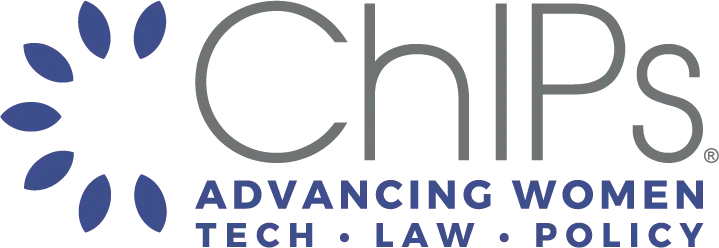By Anupma Sahay, Associate at Reed Smith. Want to learn insider tips on oral argument technique? For example, should your oral argument strategy include an introduction? What substance should you focus on? How do you address questions from a judge?
Women in tech and intellectual property gathered on September 19 at the United States Patent and Trademark Office (USPTO) headquarters in Alexandria, Virginia, for the ChIPs NextGen Summit 2023 to access these insider tips and more. The event’s agenda featured fireside chats, networking sessions and a panel starring Patent Trial and Appeal Board (PTAB) judges and practitioners.
The PTAB panel kicked off with a skill-building session in which Brittany Amadi, partner at Wilmer Hale, presented several portions of an oral argument. The presentations demonstrated oral argument practices that the panelists and women practitioners in the audience then assessed.
After each presentation, Amadi skillfully redirected by incorporating strategy tips revealed by the discussion. Through the interactive demonstrations, women practitioners learned winning practices on how to effectively begin an oral argument, the importance of focusing on the facts and evidence of the case, and approaches for pivoting in view of questions and comments from the judges.
Jackie Bonilla, Deputy Chief Administrative Patent Judge; Melissa Haapala, Vice Chief Administrative Patent Judge; Farheena Rasheed, Deputy Solicitor; and Christa Zado, Administrative Patent Judge, led the panel, which steered from the demonstrations to an expert dialogue on oral arguments.
The panelists began by explaining the purpose of oral arguments at the PTAB. According to the judges, they are well-prepared for hearings and thoroughly review the record. The judges may prepare questions for parties in advance or on the spot, making use of available hearing room chat software to confer with one another. “The positive thing is if the judge is asking you a questions, they basically told you what’s important to help them make their decision…it’s your opportunity to show them why you should prevail in your case,” said Judge Zado.
Although the papers may decide the case, oral arguments are still impactful, according to the judges. Judge Haapala noted that the point of the oral arguments is to answer the judges’ open questions that remain after the trial phase. “I find the oral argument to be incredibly helpful it helps me understand the record, it helps me understand the evidence, it helps me understand what the overall big pictures are, and what the dispositive issues are, and it can make a big difference,” said Judge Bonilla.
From the practitioner side, Solicitor Rasheed stressed preparation. Understanding the judges’ reliance on the record, she explained that the oral argument might not change the vote, but “it will change potentially the quality of the opinion and what it will say.” To Solicitor Rasheed, the goal for oral arguments is “to be there and see what remaining questions the judges might have.” “With that perspective in mind … we prepare by knowing the record in and out, really understanding the thesis,” she said.
Have you ever wondered how to address claim construction? Next up, the judges gave their thoughts. To Judge Zado, the judges’ most significant concerns are (1) getting the construction correct in case it must be justified at the Federal Circuit and (2) explaining why a term needs to be construed. Judge Zado clarified that if a term does not help resolve a dispute, the judges will likely decline to construe the term.
The PTAB record is unique, or a term may not be at issue in an infringement case at district court. Therefore, according to Judge Bonilla, the judges want to know if and how terms were construed in other courts but also want to see an explanation of why one construction is correct at the PTAB. To Solicitor Rasheed, discussing any inconsistent constructions in responsive briefing is imperative “for preservation purposes, for appellate review.” “No matter how sharp of a legal mind you are, you cannot resurrect a waived or forfeited argument,” she noted.
The panelists concluded by pitching programs that assist less experienced practitioners in gaining oral argument experience, including the PTAB’s Legal Experience and Advancement Program. “All of you will have the opportunity to either promote yourself or promote somebody else,” said Judge Bonilla. The judges gave advice for gaining oral argument experience, underscoring advocating for yourself, and making it easy for others to advocate for you by knowing the record. To Judge Zado, “from our perspective, the most valuable person to hear from is the person who knows the case well.”
